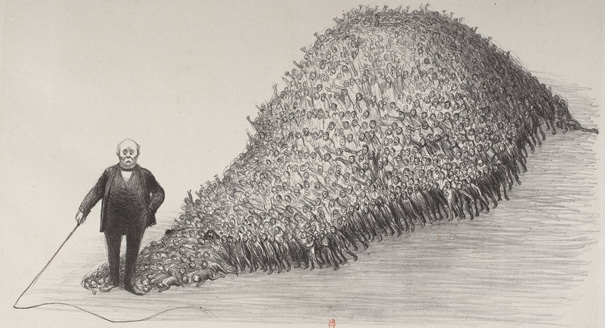For observers of Russian politics, the past two months have been a rollercoaster ride. First Putin was on his way out, then he was here to stay—but in what capacity? In attempting to explain these developments, commentators advanced directly conflicting accounts and predictions, while the president sent out ambiguous signals.
Tuesday’s events brought clarity, for better or worse. Addressing the lower house of parliament, Putin agreed to reset the clock on term limits. Although he has asked the Constitutional Court to weigh in on the move and left the final decision with its judges, there is now a real possibility that Putin will run for reelection—again—in 2024.
It must be said that the Kremlin fooled everyone, convincing observers that Putin was on his way out. No less than RT editor in chief Margarita Simonyan declared on Telegram, “If anyone was wondering whether the Boss plans to go for one more presidential term, he doesn’t.”
It seems that from January on, the elite and the presidential administration—totally in the dark and partly so, respectively—took their cues from the president, concluding on the basis of his vague statements that he had no intention of resetting the clock on term limits.
The impression lingered that not everything had been said. Putin appeared to be strengthening the presidency, but with a successor in mind, and he reassured those around him that he was not looking to become Russia’s equivalent of Kazakhstan’s elbasy, or “leader of the nation,” or using the amendments to prolong his rule.
In fact, we can now see that Putin was paying off those around him to accept the trade-off between a fifth presidential term for Putin and a new and improved constitution for everyone else. But neither the elite nor the presidential administration realized. Only the public picked up on what Putin was doing: almost half of those polled said that Putin’s aim in amending the constitution was to stay in power after 2024.
This sophisticated two-step move was one of Putin’s most impressive special ops ever. With his first step he derived as much legitimacy as possible from the constitutional reforms, which were debated in all contexts—among them God, sovereignty, children, pensions, and the State Council. All except one: Putin’s rewriting of the constitution to his own ends.
Having concealed his main goal, Putin had created ideal conditions for the advancement of a renewed constitution, a national conversation about his legacy, and the constitutionalization of Putinism. This denied the opposition the initiative, since his critics could not mobilize the people against a constitution full of social handouts, even though they could have mobilized public indignation against the idea of Putin staying on. But with the referendum on approving the constitutional changes coming up on April 22, they have awfully little time now.
Putin’s March 10 performance gave the impression that his original plan had been foiled, that he had wanted to transfer power to a successor yet decided to stay on in the face of the coronavirus outbreak, the oil price war with Saudi Arabia, and the tense situation in Syria: that he had been forced to improvise and adapt.
But upon closer inspection, there is no contradiction between his January address and subsequent comments. According to his pedantic interpretation of the law—the notion that a constitutional amendment creates a new legal norm that cannot apply retroactively—resetting the clock on term limits would not, in fact, prolong his rule. Not exactly.
What does all this mean for the prospect of changes in leadership, the importance of which the president has repeatedly spoken about in recent weeks? According to Putin, that awaits future generations. “In the long term, society must be guaranteed regular renewal at the top,” the president told the State Duma. “We need to think of future generations.” As for his contemporaries, the president suggested “lifting restrictions” on the ability of “any person, any citizen, including the current president,” to run in future presidential elections. “We have a lot more good to do before 2024, at which point things will be clear,” he said.
Putin has seen to it that he will be able to run for reelection to Russia’s highest office. A source close to the presidential administration concedes that nowadays the president’s real intentions are known to virtually no one. Right now, the priority for those around him is keeping as many options open as possible; he will decide which are appropriate and which are not.
Whatever Putin’s plans may be, the so-called “2024 problem,” with its lists of potential successors and parallel supra-presidential structures, is no longer so pressing. Whatever he chooses in 2024, Putin no longer risks being a lame-duck president.
This instructive story reveals two different Putins. One is a student of law and statist who dreams of Russia taking its place in the club of civilized nations. He talks about the importance of changes in leadership, the need to strengthen parliament. He says that dual power and undermining the constitution are unacceptable. He wishes to be remembered as a just and judicious ruler able to prioritize the country’s interests over his own, aware of his limits, and respectful of procedures, even if they must occasionally be reconfigured.
The second is a Machiavellian pragmatist who acts in the here and now and is surrounded by sophisticated and unprincipled foes who wish to see him politically destroyed by procedures.
It is likely that Putin does, in fact, want to step down and leave his legacy in the hands of a worthy successor. But that will have to wait. Today, in his view, he faces war, extreme circumstances, an immature political system, and a vulnerable state. Stability, he believes, is more important than a change of leadership.
